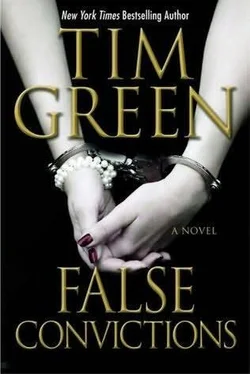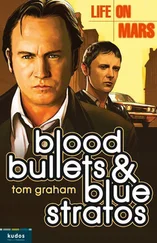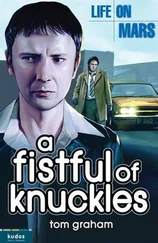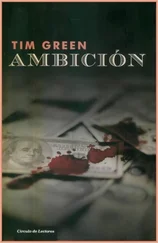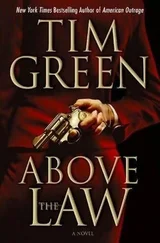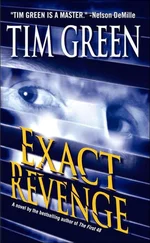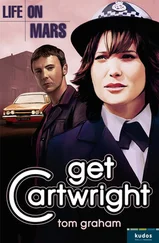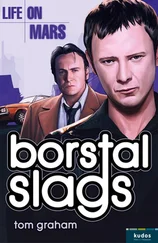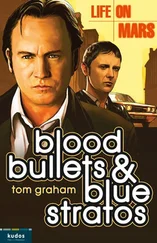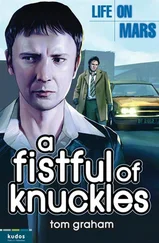“In all my time as a lawyer who loves the law,” she said, looking up from her notes at the narrow-hipped director, “never have I seen such an injustice, an injustice born of malice, racism, and the most heinous form of corruption. In the case of Dwayne Hubbard-who the Freedom Project stands beside today in joyful freedom-the crushing weight of the system acted contrary to the American principles of liberty and freedom. In short, those who swore an oath to uphold the law worked selfishly and cruelly against it.”
Flashes continued to pop and camera motors whirred. Abel, halfway down the steps and off to the side to avoid the cameras, waved frantically for Casey to step aside and she did. Dwayne cleared his own throat, and Casey saw that the sheet of paper he held behind the podium trembled in his shaking hands.
“First, I want to thank my lawyer, Casey Jordan, and the Freedom Project for this historic moment,” Dwayne said, his voice quavering as he held a limp hand up in a gesture to his supporting cast. “And I especially thank Brad Pitt, and Jesse Jackson, and Vice President Gore, along with Robert Graham from the Freedom Project. I also want to say that… that… that while I can’t understand how Judge Patricia Rivers could send an innocent man to jail, even to protect her own son, that I do forgive her, anyway.”
A murmur erupted from the crowd of reporters and the intensity of the flashing and humming built to a crescendo that waned for Al Gore and Jesse Jackson but reached new heights for Brad Pitt and even stayed strong for the bashful billionaire who thanked everyone and asked for the continued support of the American people for this great cause.
Within five minutes, the celebrities had vanished, whisked away in long dark cars sandwiched between flashing lights and sirens. The press broke down their equipment, hot to get into whatever edit space their producers might have found in the larger cities nearby.
“Well,” Graham said, sidling up next to her, wrapping an arm around her shoulders, and giving her a squeeze. “How do you feel?”
Casey looked at him, his dancing hazel eyes, the razor stubble, the rakish dark hair, and said, “Like I need a shower.”
CASEY WASN’T PLEASED when Graham asked if she wouldn’t mind waiting until he attended an important and early business dinner in Rochester before they took off. But when he pointed out that the workday would be over by the time they got there either way, she accepted the change in plan. She got on the phone and did her best to give direction to her staff. She always found it harder to be decisive over the phone, suspecting she somehow became overrun with compassion. When Jake called, she couldn’t say no to him, either. She went downstairs and patiently answered his questions, seeing exactly where the interview was heading and not minding to be a part of smacking down the overzealous criminal system of this and other small towns that deserved it.
When they finished, she asked Jake if he had any interest in a cappuccino, but he apologized, explaining that Dora was frantic with their deadline, and headed off to meet Marty in his offices for some background information on Judge Rivers. Casey returned to her room and pushed the curtain aside. She looked at her watch, then the afternoon sunshine outside, and decided to take a walk to mull over several frustrating cases at the clinic. She set off uphill toward the center of town and past the antiquated town hall. She thought about going back to her room to change into something more comfortable than her business suit and heels but decided instead to slow her pace. She circled the Seward House, home of Andrew Jackson’s secretary of state, the man famous for buying Alaska from the Russians for a song.
Shadows had begun to grow long when a dark blue Suburban sped toward her down the side street and came to a shuddering halt. A man wearing jeans and the kind of dark blue windbreaker common to law enforcement slipped out of the driver’s side. The man, who stood over six feet tall, was middle-aged and lean, with dark glossy hair combed back from a sharp narrow face framed by muttonchops. He hurried around the truck, and Casey was curious to see him swing open the passenger side.
Something about him made her uncomfortable. She glanced around at the empty street, and by the time her eyes returned to him, he was upon her.
“Casey Jordan?” he asked. His dark eyes bored into Casey’s under the eaves of thick black eyebrows, and Casey stepped back instinctively.
With expert ease, he gripped her wrist and clamped down on a nerve hard enough for her to stagger. He swept her arm up behind her back, keeping the pressure on the nerve, and propelled her across the small strip of grass and into the truck, slamming the door behind him.
Casey yanked at the handle as he rounded the hood. When she realized it didn’t work, she threw herself across the driver’s side to open that door. He yanked it open. She hooked her fingers into claws, ready to tear into him as best she could, but he removed a big shiny pistol from his coat pocket and put it to her forehead.
IN THE CRAMPED confines of his office, Marty explained the deal with judges, their campaign funds, what they were supposed to do, and what some really did. Jake’s mind zoomed in and out, seeing the cheaply framed diplomas from Buffalo State and Albany Law School and a picture of Marty in a bad suit smiling stupidly and shaking hands with George Bush Sr. in front of a potted plant and an American flag.
“So,” Jake said, angling his chair sideways so he could stretch his legs along the length of Marty’s battered desk, “what you’re saying is that most judges don’t have campaign funds.”
Marty toyed with his paisley yellow tie, shaking his head. “Well, no. Most do.”
Jake squinted.
“But not judges like Judge Rivers,” Marty said. “She’s an appellate judge. They and the court of appeals judges don’t have funds. They shouldn’t have. They don’t need them. They’re appointed. Supreme court judges get elected. New York Supreme Court judges. It’s kind of backward in New York. At the federal level, the Supreme Court is the highest.”
“That I get.”
“Right, but in New York it’s the court of appeals. The appellate is just below them.”
“Where Rivers is?”
“Right, and about to be-or was about to be-moved up to the court of appeals,” Marty said, going for the ear. “It’s a good stepping-stone to the Supreme Court.”
“At the federal level,” Jake said.
“Justices like Holmes,” Marty said, nodding zealously. “Cardozo. Big guns who went through the New York Court of Appeals.”
“Is that where Rivers was headed?”
“Maybe. It’d be in striking distance if she sat on the court of appeals for a couple years.”
“And they get appointed by the president?”
“Well, technically,” Marty said. “But it’s really the party.”
“Using what standards?” Jake asked.
“The usual ones,” Marty said, dropping his tie.
“Judgment. Consistency. Respect.”
“Philosophies,” Marty said. “Affiliations. Contributions.”
“That’s what I’m talking about,” Jake said, snapping his fingers.
“Affiliations?” Marty said.
“Contributions,” Jake said, his voice rising. “It’s part of the game?”
“Well, always. Kind of.”
“Because the party likes that. Even from judges.”
“Sure.”
“So how do we find out?” Jake asked.
Marty leaned toward the window. Jake heard sirens racing past.
“I think that was Brad Pitt,” Marty said, his shoulders sagging.
“Marty, how do we find out?” Jake asked again.
Читать дальше
